We salute you: the guitar genius of Malcolm Young
Four years after his passing, we remember the AC/DC rhythm king's legacy
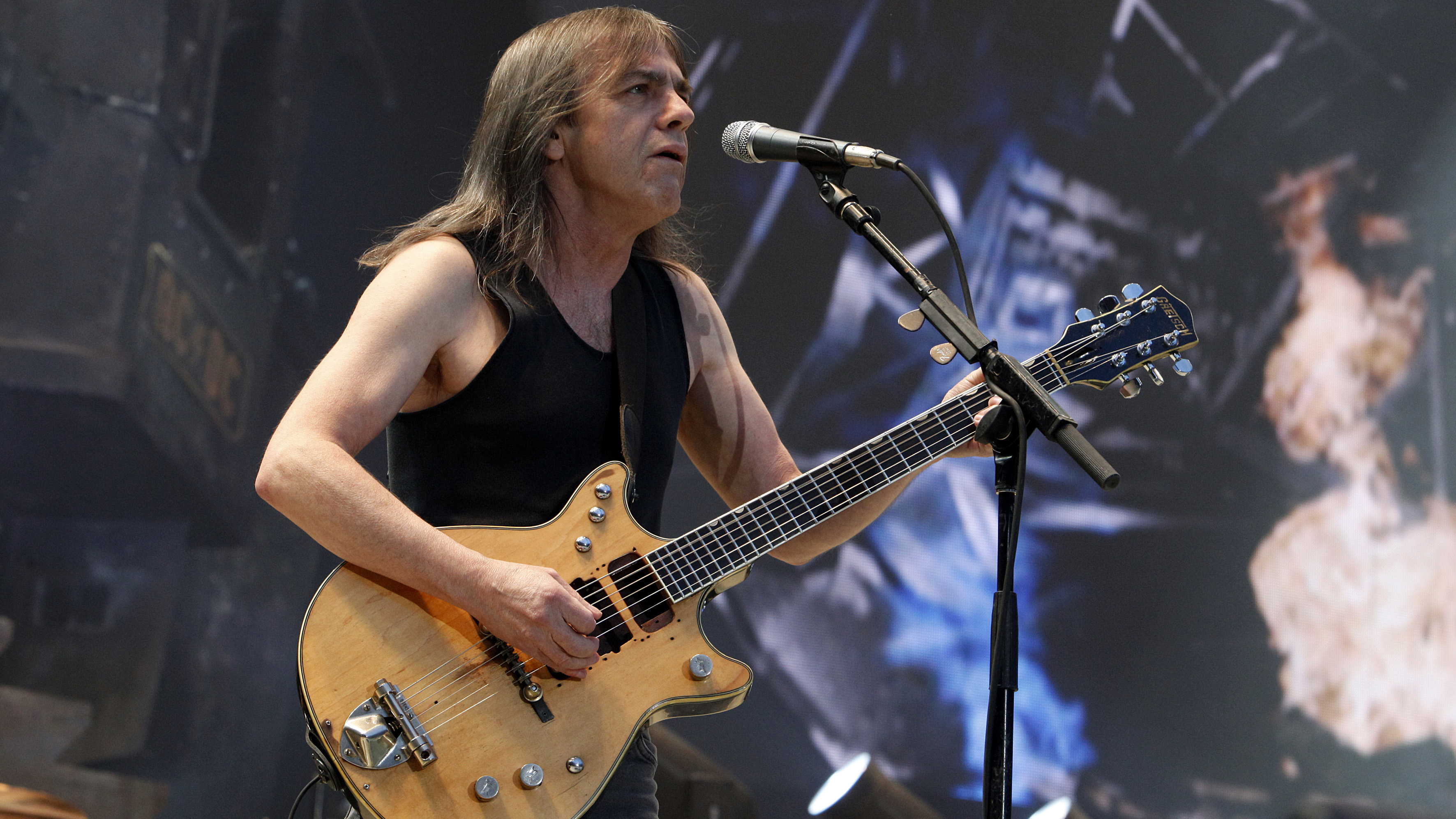
Has any guitar player had as much impact on rock ’n’ roll while remaining as grounded as Malcolm Young? Literally so; stage right of the drums, head banging with a 1963 Gretsch Jet Firebird in hand, driving the engine room of AC/DC to become one of the most formidable live rock bands of all time.
AC/DC’s refreshingly unpretentious founder and guitarist passed away on 18 November, 2017, aged 64, and looking back it’s impossible to imagine the band existing at all without this humble, low-key but passionately driven man. Malcolm was their leader and writer of many of their best-loved riffs. In so many ways, AC/DC was his vision. And it became a rock ‘n’ roll legend.
Join us as we pay tribute by celebrating the legacy of a true guitar hero, and learn from one of the very best.
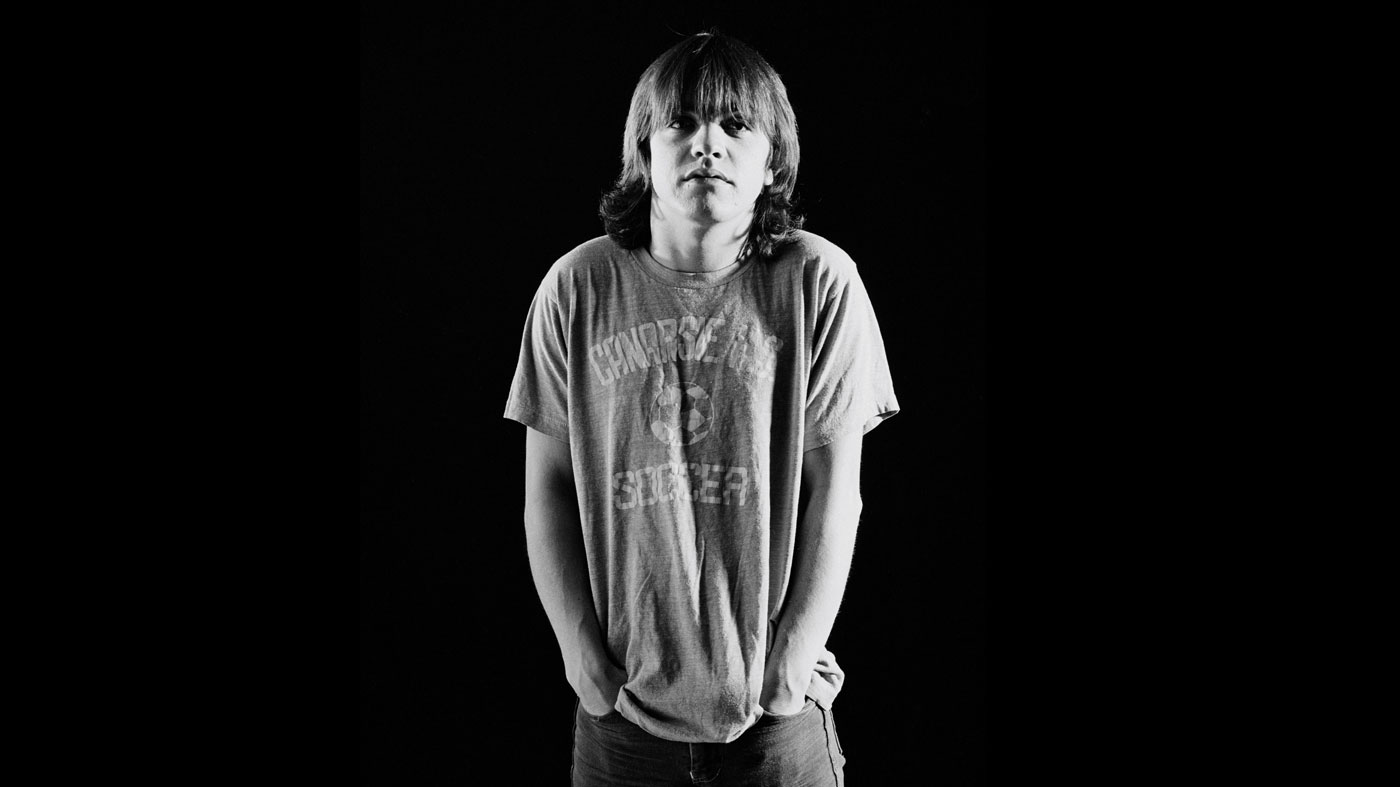
If you want blood
Music was in the blood of the Young family; all the brothers played instruments. Malcolm, older siblings George, Alexander, William, eldest Stephen and youngest brother Angus were all born in Glasgow, their large family living in 6 Skerryvore Road in the Cranhill area before being attracted to warmer climes and emigrating to Australia in the summer of 1963.
Malcolm’s rhythm work became the definition of how powerful economy could be
In total, 15 members of the Young clan left for a new life in Sydney - brother Alexander stayed on in Britain to continue with his music. George was the first to pick up a guitar and soon found fame as a member of the The Easybeats. It would be 10 years later that his younger brothers formed the band in Sydney that would become an unstoppable force.
Within two years of forming, AC/DC had released their first album High Voltage, and the band then embarked on one of the greatest album runs in rock ’n’ roll history with singer Bon Scott at the mic, brother George at the production desk and Angus and Malcolm co-writers for the likes of 1978’s Powerage and the following year’s Highway To Hell with South African producer Mutt Lange at the helm.
Malcolm’s rhythm work became the definition of how powerful economy could be, and the sense of space he imbued around his driving right hand downpicking gave the band its trademark sound for Angus Young’s lighting fl ashes of lead to break over.
Get the MusicRadar Newsletter
Want all the hottest music and gear news, reviews, deals, features and more, direct to your inbox? Sign up here.
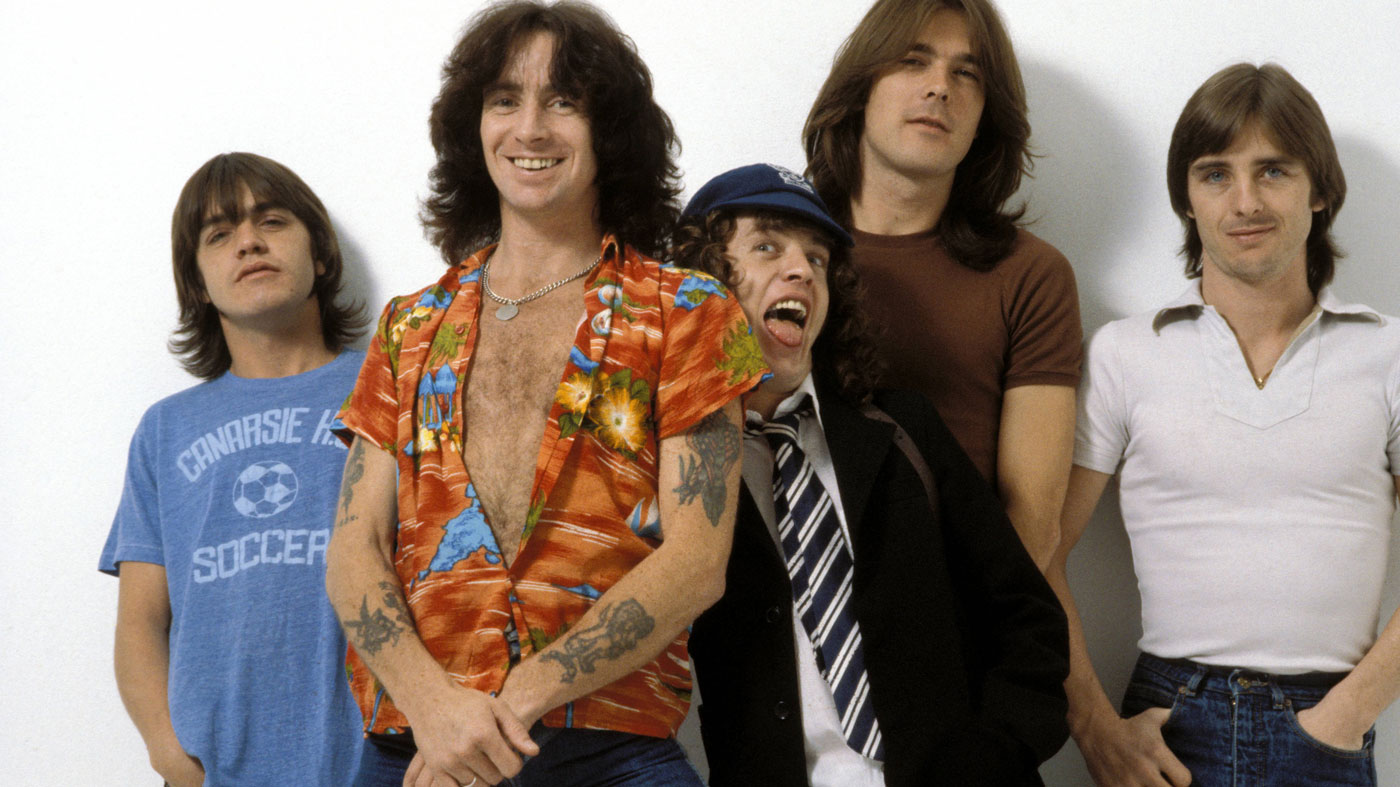
Long way to the top
Typical of the head-down way he approached his role, Malcolm gave very few interviews in his life. Though he acknowledged he was raised on the sounds of forebears The Who and The Rolling Stones, his approach in the band’s early days was based on a very simple ingredient.
“Back then we never went into the studio with anything more than a riff ,” he told Martin Blake in 1992. “In fact, we thought a riff was a song. We really didn’t know any better.”
With Back In Black, just like Highway To Hell, Malcolm was responsible for the title track’s classic riff
But it was that sense of getting straight to the point, alongside a discipline shaped by relentless touring that would drive the band’s harder take on the Chuck Berry boogie they covered in their days playing Sydney’s bars.
In the face of a tragedy that would have finished most bands, Malcolm and Angus’s resolve helped to steer their band on to further success after Highway To Hell’s breakthrough.
Following the sudden death of Bon Scott in 1980, AC/DC picked themselves up, recruiting singer Brian Johnson and developing the rough scraps of songs they worked on with Scott to record the triumphant Back In Black with his Gateshead-born replacement. And just like Highway To Hell, Malcolm was responsible for the title track’s classic riff. It would be the band’s last truly classic album, but even before illness forced retirement from the stage in 2010, Malcolm had already overcome lung cancer, heart problems and alcoholism to continue as the unsung lynchpin behind one of the most formidable live acts in the world.
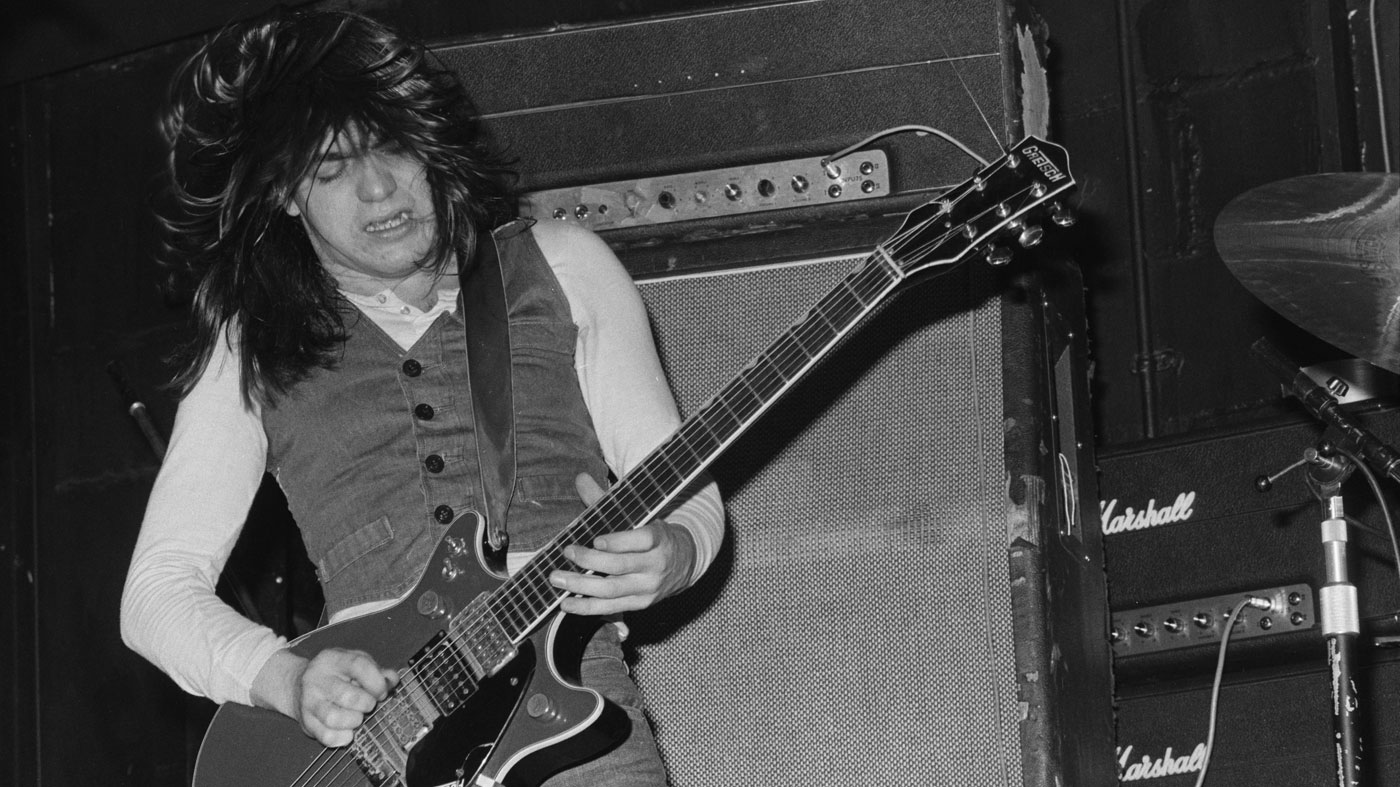
Boy's got rhythm

Alongside the classic drum and bass powerhouse that was Phil Rudd and Cliff Williams, Malcolm proved he was one of the all-time rhythm guitarists. His infl uence is hard to surmise; AC/DC made so many want to play. Even the other rhythm kings bow to Mal.
“Malcolm had an intensely powerful, percussive and economic style of playing that made him the greatest rhythm guitarist of all time,” said Anthrax’s Scott Ian, paying tribute on Instagram.
“His uncanny ability to wring only the necessary notes out of his Gretsch was what made AC/DC - his riffs, feel and tone the soul of that band. What he means to me is unquantifiable. I am a rhythm guitarist because of Malcolm Young, he lives with me always and I hope to honour the man and his legacy every time I play.”
Over the years it was his nod that they looked to for the changes on stage, his instincts that often led the band’s decisions
Slash was yet another guitar hero in the long list of those musicians who mourned his death and who was keen to credit Young, and not just for his playing. “Malcolm Young was one of the best ever rhythm guitarists in rock’n’roll,” he told Rolling Stone in tribute. “He was a fantastic songwriter and he had a great work ethic too.”
The way that ethic fed into Malcolm’s other roles in the band cannot be overstated. Rhythm guitarists are underrated enough, but he was the closest thing AC/DC had to a musical director. Over the years it was his nod that they looked to for the changes on stage, his instincts that often led the band’s decisions; especially their core sound that remained relatively unchanged. And he was very clear about the rare entity AC/DC had become in 21st century guitar music…
“There are very few rock ’n’ roll bands,” Malcolm told Lola Da Musica around the time of 2000 album Stiff Upper Lip. “There are rock bands, there’s metal… but there are no rock ’n’ roll bands. There’s the Stones and us, and their sound is completely different to us. So we really aim in an area that’s going back in time with the sound. The old analogue sounds… so we try to keep that. And the sounds are bigger than digital.”
Pressed on the key difference between a rock and rock ’n’ roll band, Malcolm also pinpointed a key appeal to AC/DC’s rhythmic approach. “Rock bands don’t really swing. Rock’n’roll has a swing - you’ve got your hi-hats [beats out 4/4 rhythm] and a lot of rock’s not got that swing in the hi-hat. It becomes stiff . They don’t understand the feel, the movement… it’s a feeling.”
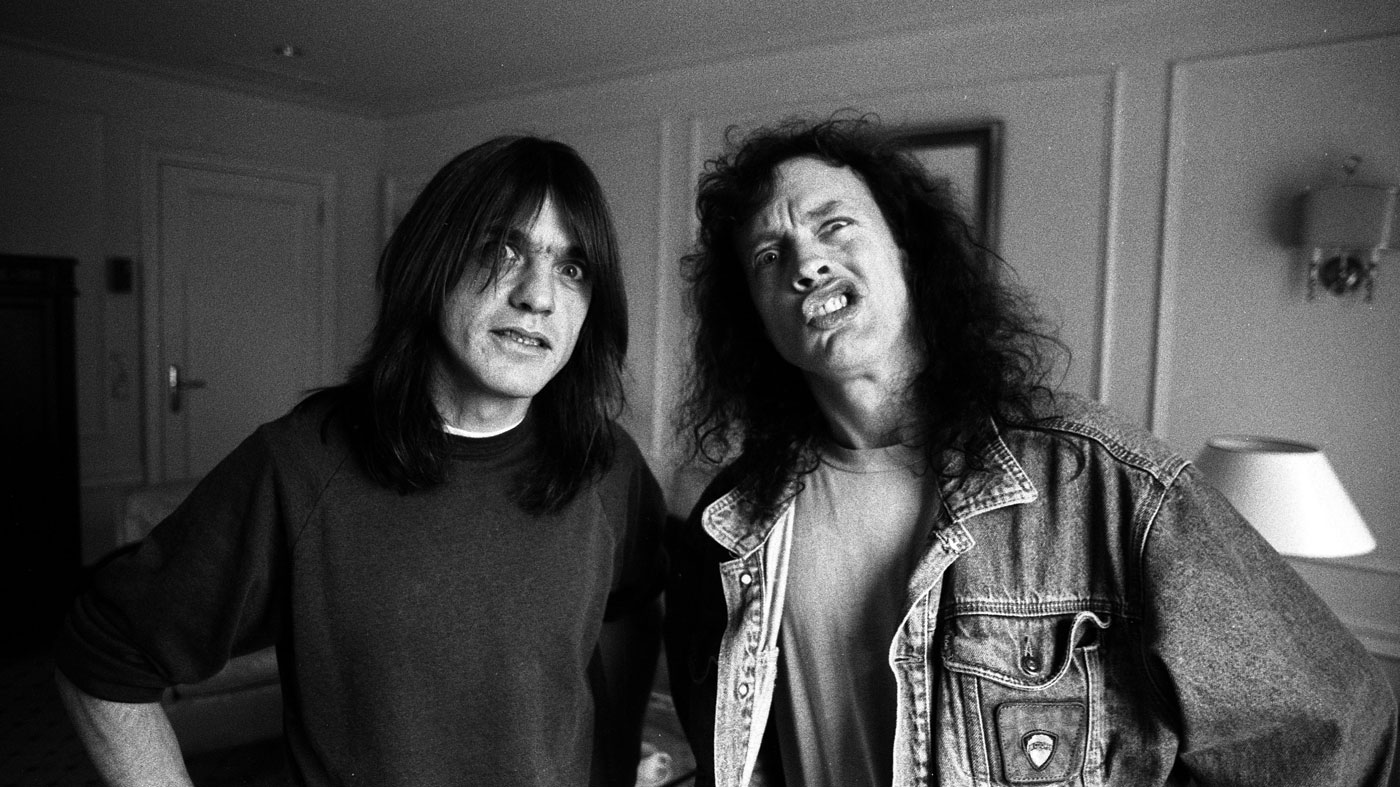
Who made who
That feel, mojo, attack, emotion… whatever you choose to call it, is the key to a dynamic in AC/DC that is often misunderstood by other players as simplicity, or more specifically ‘easy’.
Because if the ingredients seem straightforward, the delivery is certainly not. Malcolm was at the centre of that. “To me, Malcolm is a one of a kind and the heart and soul of AC/DC,” said Eddie Van Halen of his old touring buddy. “The combination of the riffs he wrote and his rhythm playing are the foundation of who they are.”
Sometimes, I look at Malcolm while he’s playing, and I’m completely awestruck by the sheer power of it
Angus Young
And Malcolm played rhythm by choice - he’d even take leads in the early days of the band, with Angus generously crediting him as being the better solo player. Nevertheless, Malcolm made the choice to stand back and let his younger brother come to the fore
“Malcolm’s really underrated,” Angus told Guitar World. “He makes the band sound so full, and I couldn’t ask for a better rhythm player. Sometimes, I look at Malcolm while he’s playing, and I’m completely awestruck by the sheer power of it. He’s doing something much more unique than what I do - with that raw, natural sound of his.”
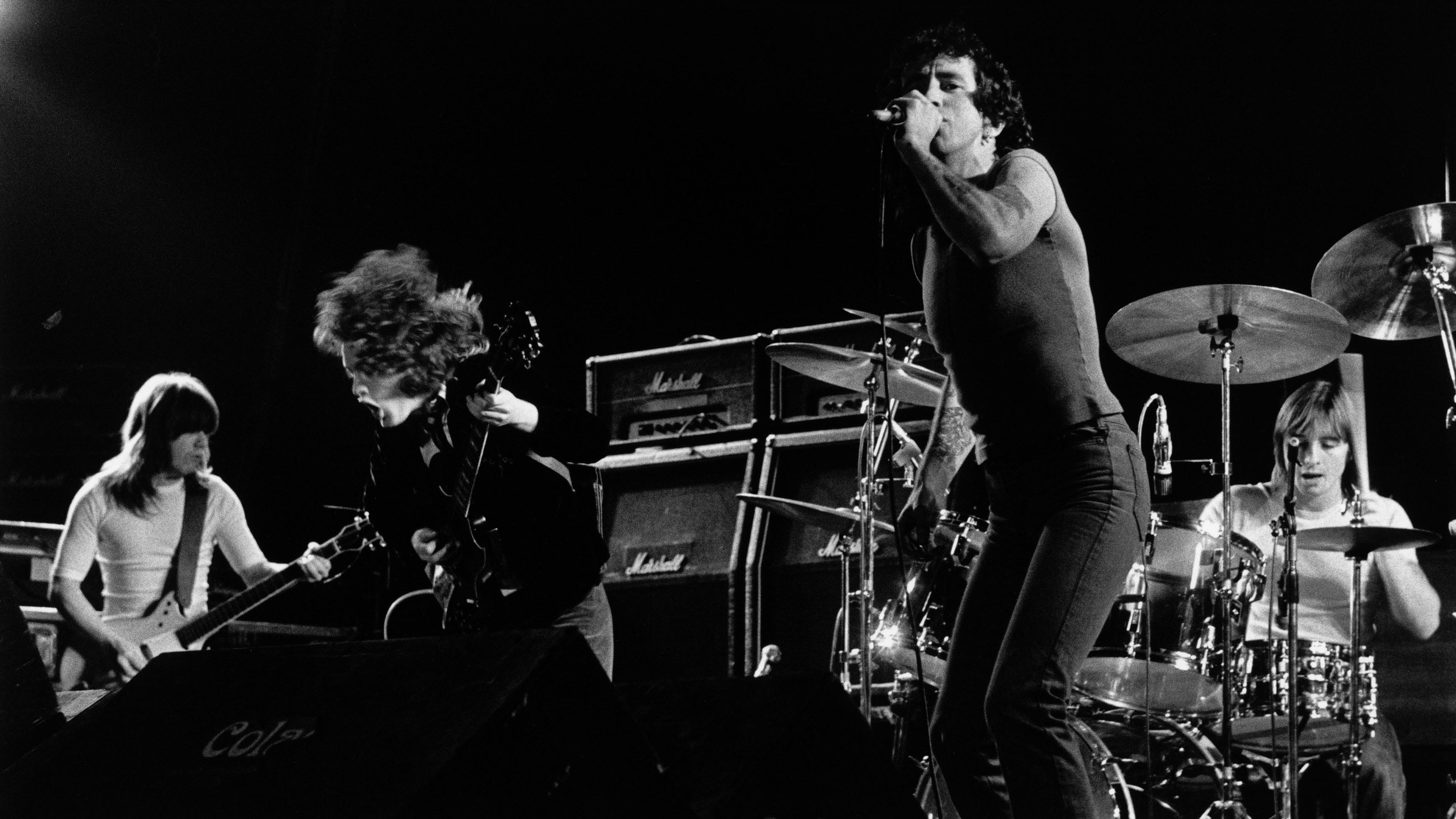
5 songs guitarists need to hear by… AC/DC (that aren't Back In Black)
Angus also once revealed that Malcolm was always incredibly organised when it came to the band, and it was his growing confusion that was to become the warnings signs of the dementia that would eventually contribute to his untimely passing. He dealt with the immense challenge of facing that diagnosis and fulfilling his touring role in the band with typical pragmatism. Every day Malcolm would rehearse the songs he’d once known off by heart for 30 years to make sure that he could continue to deliver for AC/DC fans for as long as possible before finally retiring from the road and the stage in April 2014.
When Angus mourned the loss of both Malcom and George Young within just one month of each other, it’s perhaps his perspective as Malcolm’s lifelong guitar partner that was most poignant. “It is hard to express in words what he has meant to me during my life,” Angus said following the news of Malcolm’s passing, “the bond we had was unique and very special. He leaves behind an enormous legacy that will live on forever. Malcolm, job well done.”
Learn from rhythm guitar master Malcolm Young with these AC/DC-style riffs

Rob is the Reviews Editor for GuitarWorld.com and MusicRadar guitars, so spends most of his waking hours (and beyond) thinking about and trying the latest gear while making sure our reviews team is giving you thorough and honest tests of it. He's worked for guitar mags and sites as a writer and editor for nearly 20 years but still winces at the thought of restringing anything with a Floyd Rose.
“Its mission is simple: unleash the power of any amplifier or line-level source without compromise”: Two Notes promises a “watershed” in tube amp control with the Torpedo Reload II
MusicRadar deals of the week: Enjoy a mind-blowing $600 off a full-fat Gibson Les Paul, £500 off Kirk Hammett's Epiphone Greeny, and so much more
















